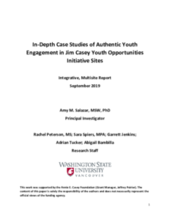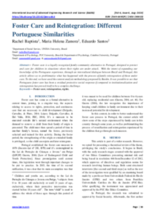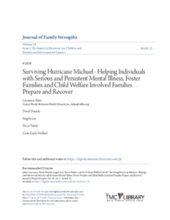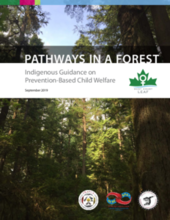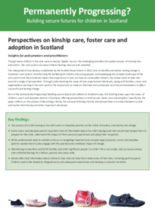Displaying 701 - 710 of 2221
This study sought to analyze the executive functions of a sample of 43 Spanish foster children aged between five and nine years (M = 7.51, SD = 1.29), using a caregiver-reported questionnaire.
Removal of a baby from his or her mother at the time of birth, when child protection issues are suspected, is know as an Assumption of Care (AoC). This research explored childbearing women's experiences of an AoC at birth. It sought to understand individual women's stories, how they made sense of of the experiences and how these experiences framed their lives.
This study examined stakeholder views on the key elements and challenges of youth participation in policy advocacy in the context of a US multi-state current and former foster care youth coalition.
Decades of research confirm that children and adolescents in out‐of‐home care (foster family, residential care) have much greater healthcare needs than their peers. A systematic literature review was conducted to evaluate organizational healthcare models for this vulnerable group.
The purpose of this study is to synthesize and share the Jim Casey Youth Opportunities Initiative’s approach to youth engagement. The study’s findings communicate how authentically engaging youth can help both the Jim Casey Initiative and youth-serving systems achieve their desired results.
This article examines the family reintegration process for those in care in Portugal and Brazil.
This article highlights the experiences of staff who responded to the needs of individuals, families, and communities following Hurricane Michael in Florida, USA in October 2018 and is focused on the perspectives of individuals working in the field.
This report explores the experiences of 64 Indigenous parents who have had engagement with the child welfare system in Canada. Their stories and expertise provide a wealth of knowledge about the strengths and weaknesses of current prevention-based eff orts and programs. Their experiences demonstrate that, despite the Ministry for Children and Family Development’s (MCFD) emphasis on improving prevention-based services for Indigenous families, long-standing apprehension-focused practices continue to permeate the system.
Part of the 'Permanently Progressing? Building secure futures for children in Scotland' study, this briefing draws upon the voices of children, carers and adoptive parents in Scotland, offering perspectives on kinship care, foster care and adoption.
This report examines home visiting models and curricula, state- and federal-level policies related to early care and education and home visiting, funding streams to support early care and education and home visiting, and the perspectives of home-based child care (HBCC) providers and parents in order to explore the potential for scaling up this model of professional development for HBCC providers in the United States.

